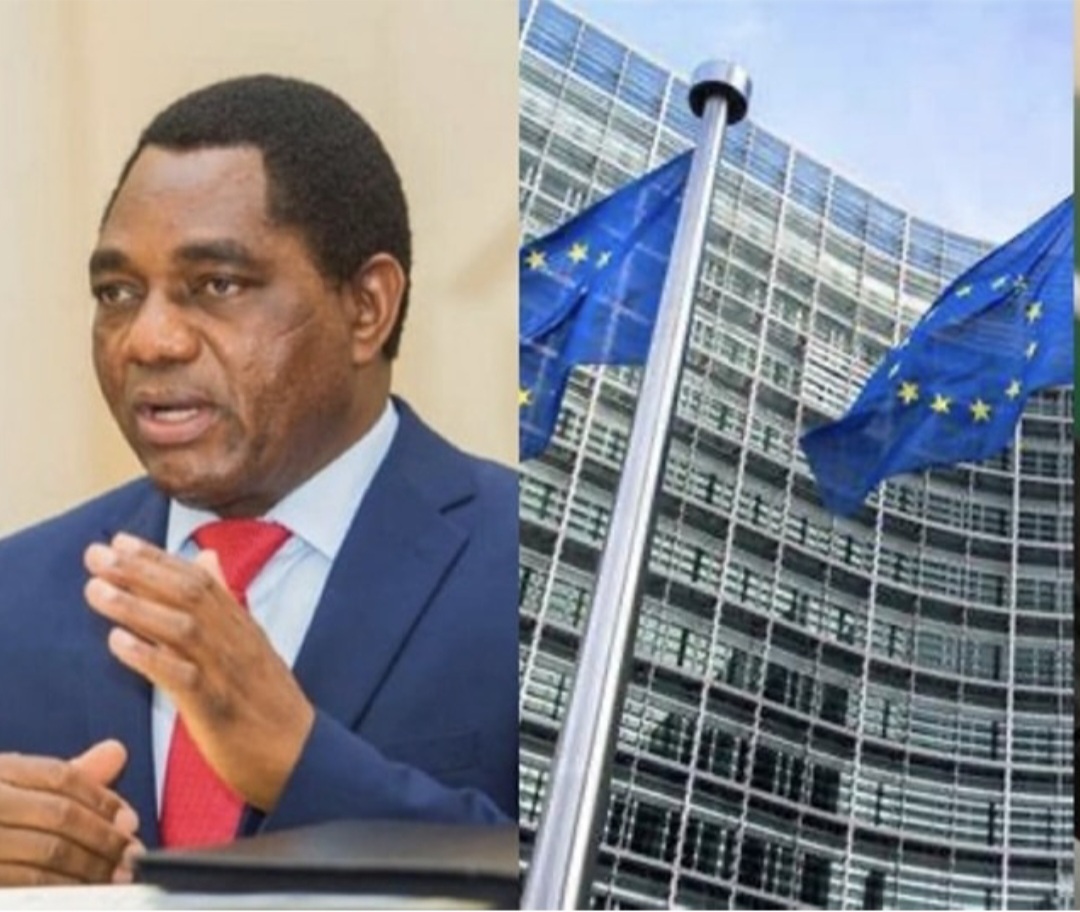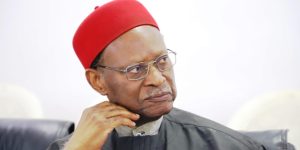Zambian President Hakainde Hichilema Demands Refunds for Rejected Visa Fees from EU and UK
In a bold and unprecedented move that is rapidly gaining global attention, Zambian President Hakainde Hichilema has formally demanded that the European Union (EU) and the United Kingdom (UK) refund visa application fees to Zambian citizens whose applications are rejected. The demand, announced during a press briefing on Friday, May 23, 2025, signals growing frustration among Global South nations over what many perceive as exploitative immigration practices by Western countries.
The statement is already sparking diplomatic murmurs, online debates, and calls for reforms in international visa systems—particularly as many African travelers have long expressed concern over opaque rejection processes and the lack of financial recourse for denied applications.
President Hichilema’s comments came after months of complaints from Zambian citizens about the increasing difficulty in securing visas for travel to Europe and the United Kingdom. Whether for tourism, education, business engagements, or even medical travel, many applicants report spending large sums on visa fees—ranging from $100 to $300—only to be denied entry with little or no explanation.
“It is unacceptable that our citizens lose significant sums of money on unsuccessful applications,” Hichilema said. “These fees should only be charged for successful applications. If a visa is rejected, the applicant deserves a refund.”
His remarks were not just a political statement—they reflect a wider discontent brewing across the continent about the fairness of visa policies, particularly when countries like Zambia work to build diplomatic and trade partnerships with the same nations imposing such stringent entry conditions.
YOU MAY READ
Redefining Wealth: Elon Musk, Liquidity, and the African Algorithm For Networt
Visa application fees, while often justified as administrative costs, are non-refundable in most Western immigration systems. The UK Home Office, for instance, has a comprehensive refund policy for overpayments, application withdrawals, and errors made by the department. However, it does not typically refund fees for rejected visa applications.
Similarly, the Schengen Area under the EU mandates a non-refundable fee—currently €80 for adults and €40 for minors. The rationale offered is that processing a visa, regardless of outcome, incurs resource costs. Yet for applicants, especially from low- and middle-income countries, these costs are often a significant financial burden.
Many rejected applicants in Zambia have shared stories of spending hard-earned savings only to receive terse rejection letters citing vague reasons such as “lack of strong ties” or “doubts over return intention.”
Lusaka-based entrepreneur Christine Zulu, who applied for a UK business visa in March 2025, shared her frustration: “I submitted bank statements, tax documents, and an invitation letter. After paying over $200 for the application, I was rejected without a clear reason. The money is gone, and I have no way to appeal or reclaim it.”
President Hichilema, known for his reformist and pro-business stance, has previously advocated for stronger reciprocal relationships between Zambia and Western countries. His administration has focused on economic recovery, good governance, and increased foreign investment.
This latest demand, though unusual in tone and scope, aligns with his broader foreign policy agenda that emphasizes dignity, mutual respect, and fairness in international partnerships.
“In a world that speaks of global cooperation and partnership, why must Zambians—and by extension, Africans—suffer humiliation and financial losses merely for trying to travel?” the President questioned during his speech. “We are not beggars. Our people deserve fairness.”
He called on the EU and UK governments to initiate a review of their visa policies, particularly as they relate to citizens from African nations who bear disproportionate rejection rates.
Reactions to Hichilema’s demands have been swift and varied. Human rights advocates, travel reformists, and some African leaders have praised the move as long overdue.
“This is a landmark call. Many countries have quietly accepted the unjust burden placed on their citizens by foreign immigration systems. President Hichilema has said what many leaders have been afraid to say,” said Fatou Bensouda, former Gambian Justice Minister and international legal advocate.
Legal experts note, however, that while the demand is morally and politically compelling, there is little precedent in international law that compels countries to refund visa fees for rejections.
“The issue here lies in the contractual nature of the visa application. By applying, the applicant agrees to pay a non-refundable fee for consideration, not for approval,” said Prof. James Ndlovu, an international law scholar at the University of Cape Town. “Reversing this would require legislative reform within the EU and UK systems, which may not happen quickly, if at all.”
Still, the fact that the issue has been publicly raised by a sitting African president could shift the diplomatic calculus and prompt a wider re-examination of visa fairness.
Visa disparities are part of a broader asymmetry between Global North and Global South nations. While citizens of Western countries enjoy visa-free or visa-on-arrival access to most of the world, African passport holders often face strict entry conditions, multiple application requirements, and lengthy processing periods.
A 2024 Henley Passport Index report ranked the Zambian passport 75th globally, allowing visa-free travel to only about 70 countries—compared to the UK’s access to over 190 countries.
Many Africans have long viewed the visa process not just as bureaucratic, but as discriminatory.
“We are treated as potential illegal immigrants before we’re treated as travelers,” said Zambian journalist Mwaka Tembo. “Even when we meet every requirement, we are denied. And we’re expected to smile and walk away—without our money.”
Zambia’s civil society organizations, student unions, and travel agents have broadly welcomed President Hichilema’s stance.
The Zambia National Students Union (ZANASU) issued a statement applauding the President: “Students applying to study abroad often rely on family contributions and scholarships. When their visas are denied, the financial losses are devastating. We fully support the call for refunds.”
The Tourism and Travel Association of Zambia (TTAZ) echoed similar sentiments. “The visa fee issue is more than a money problem—it affects our credibility, our mobility, and our economic potential,” said its president, Ruth Chanda. “This is a conversation that the world needs to have.”
As of May 24, 2025, neither the UK Foreign Office nor the European Commission had issued a formal response to Hichilema’s statement. However, insiders suggest that the matter is being reviewed behind closed doors.
One British diplomat in Lusaka, speaking anonymously, admitted the demand puts the UK in a delicate position. “On one hand, the fees are a longstanding part of the system. On the other hand, this is a significant diplomatic moment. It forces a rethink—at least in terms of public relations.”
An EU immigration official in Brussels also confirmed that the European Commission’s Department for Home Affairs is “aware of the remarks and reviewing current visa fee protocols.”
Whether this will lead to policy change remains uncertain. But the statement has already elevated the topic onto global diplomatic platforms, with other African countries reportedly considering similar demands.
Several commentators view Hichilema’s move as a post-colonial assertion of equality and reciprocal respect. Zambia, like many former British colonies, has deep historical and socio-economic ties with the UK.
“This is a message to the former colonial powers: Africa is no longer content to be treated as an inferior partner,” said Kenyan author and political analyst Njeri Makena. “Demanding visa fee refunds may seem symbolic, but it’s part of a wider call for justice in global relations.”
Indeed, countries like India and Brazil have, in the past, introduced reciprocal visa policies—charging or waiving fees based on how their citizens are treated abroad.
Should Zambia choose to adopt similar measures, it could significantly impact travel and diplomacy in the region.
At this point, it is unclear how Zambia plans to engage the EU and UK to pursue the refund demand. No formal complaint has been lodged with the UN, African Union, or Commonwealth Secretariat.
Observers believe the Zambian Ministry of Foreign Affairs will likely initiate bilateral discussions, possibly seeking backing from other African states to build regional pressure.
“This could evolve into an African Union position,” speculated Dr. Sylvester Mwamba, a senior policy advisor in Lusaka. “If multiple nations rally behind this call, it would be harder for Europe and the UK to ignore.”
Zambia has been working to boost tourism, foreign investment, and educational exchange. However, visa rejections for outbound travelers often hamper confidence and global engagement.
“People want to study, do business, and network across borders. Visa barriers tell them they’re not welcome, even before they get a chance,” said Patrick Mumba, a Lusaka-based tech entrepreneur.
Tourism professionals also highlight that the same countries denying visas to Zambians are aggressively marketing their own destinations in Africa.
“How can they promote UK universities and European tourism in Zambia, but close their doors to our citizens?” asked hotelier Miriam Kapembwa. “This is hypocrisy.”
On social media, Hichilema’s remarks have gone viral. The hashtag #RefundOurVisas has trended in Zambia and beyond, with users from Nigeria, Ghana, South Africa, and Kenya sharing similar grievances.
“This isn’t just a Zambian issue. It’s African,” tweeted South African activist Kamohelo Nkosi. “Our leaders must demand dignity and reciprocity.”
In contrast, some critics argue that President Hichilema should focus more on fixing domestic challenges than confronting global visa systems. But supporters say the two are not mutually exclusive.
“You can build your country and still demand fairness for your people abroad,” posted Zambian student Bwalya Nsofu. “Why should we pay for rejection?”
President Hakainde Hichilema’s demand may not instantly reverse decades of immigration policies. But it has undeniably sparked a global conversation about fairness, equity, and respect in international mobility.
In a world where globalization is heralded, the reality is that mobility remains highly unequal. Citizens from the Global South continue to face steep financial and bureaucratic barriers simply for trying to cross borders.
Whether the UK and EU amend their visa refund policies or not, Hichilema’s bold stand has put a spotlight on an issue long dismissed as routine. It is a reminder that leadership sometimes means saying what others are afraid to say—and standing up, not just for citizens at home, but for justice abroad.





